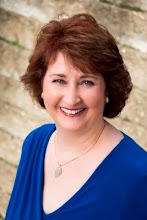Don't you? DON'T YOU?!
Ahem...
Ahem...
Our cover designer Michelle does an amazing job in working with the authors of Books We Love Publishing to ensure our literary vision is presented with the best cover art imaginable... and believe me, we're writers! We imagine up some pretty strange stuff sometimes...
 |
| Believe me folks, get a cover designer. Not even Stephen King could sell a book with a cover page as terrible as this.... |
In fact, this isn't even the first image she's done for me. She also did the design work on The Curious Case of Simon Todd, another book I wrote and published with Books We Love back in 2018.
In the grand scheme of things, book covers are pretty important. We've all heard the old adage of don't judge a book by its cover, but sticks and stones break bones and names hurt too, dammit! So not every maxim is true 100% of the time.
This is why every good book needs an amazing image to covey the general theme of the plot or main characters within. I mean, unless you're a big wig author like George R. R. Martin or Dean Koontz... then you're name's probably enough... Right?
But assuming you aren't famous yet, and if you are, Hey! How about an endorsement? Then your name broadcasted in the middle of the page isn't likely going to cut it. Unless you're name's Isa Goodread or something.
This means research is needed. What makes a good cover? In my humble opinion less is usually more. I tend to focus on a few key elements that encompass the story. Take Ballroom Riot for example. There is a girl, a dragon and some stylistic elements that hearkens back to... say the 1920's?
A reader should know by a glance the general themes they will encounter in the story. If it's too busy, or there are too many images, the point can become lost. Remember, you're competing for attention out there. You don't want your amazing story overshadowed by sexy Fabio with his shirt off, do you?
Well maybe you do, but unless you can go back in time and contract young Fabio to pose for your amazingly written romance, readers will be drawn to the main elements you authors seek to showcase.
Give them an interesting focal point. If they are into naked men, and your story is about naked men, give them a half naked man! But don't surround him with a myriad of other stuff we don't care about!
...or at least, don't care about as much as we care about naked men...
Don't get me wrong. We don't want to entice the wrong audience. We don't want to mislead the reader. We want to pull them in at a glance and make them pick up the book.
Then they can read the blurb at the back, see if it's their cup of tea, and hand over that sweet, sweet money...
Sure! There's a market for busy images. But unless your Waldo, or know somebody like him, I'd strongly recommend sitting down, having a think, and figuring out a few choice themes your book is about and how best to showcase them on the front cover.
Don't forget about colors and fonts! Or your sexy little author name somewhere where we can all see it and be proud of you! Talk it over with a cover designer too. Again: having someone like Michelle is a Godsend. You definitely won't regret it.














.jpg)












.jpg)
.png)